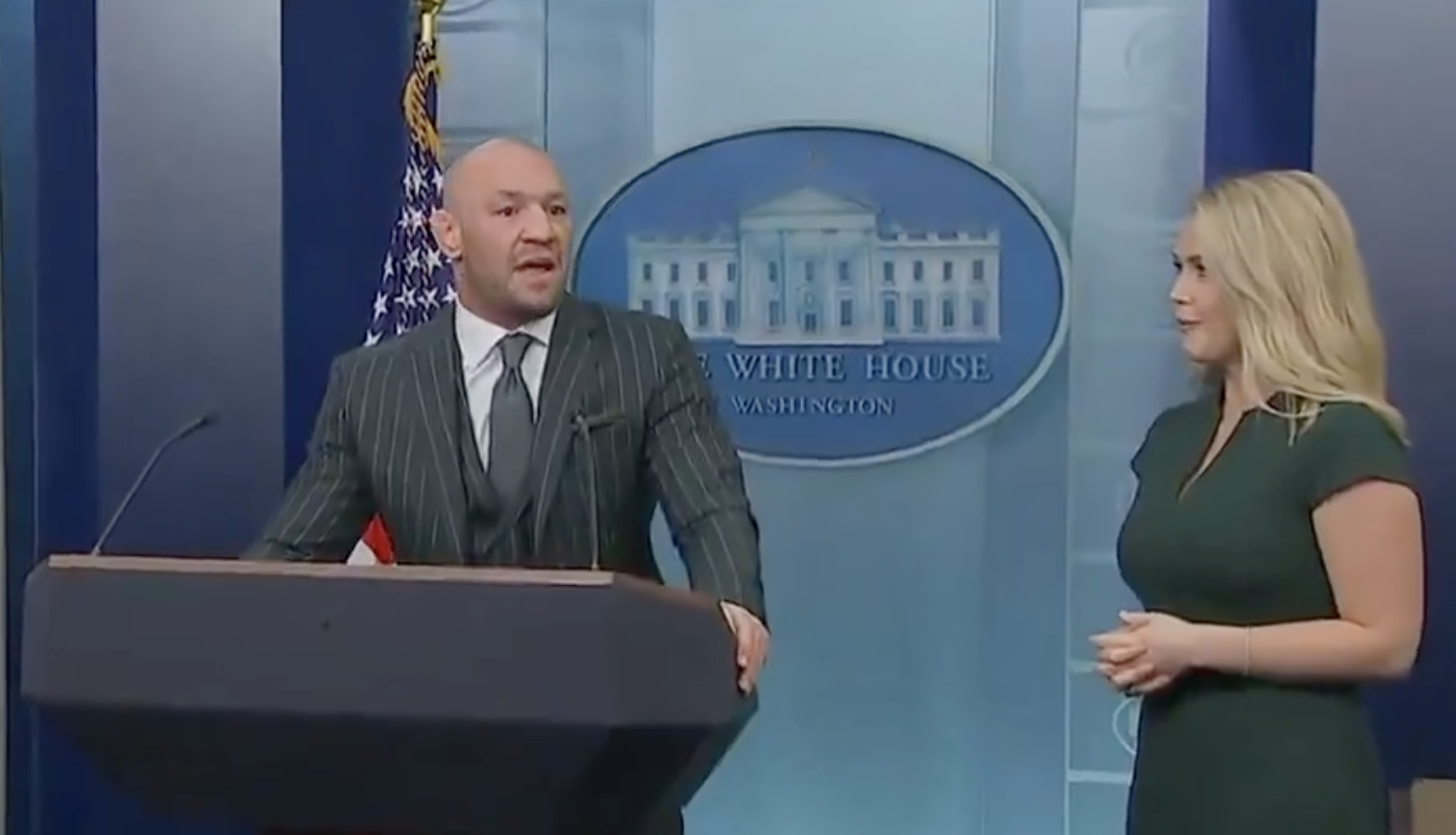Mixed Martial Arts (MMA) fighter Conor McGregor has once again found himself at the center of controversy, this time for his visit to the White House and his meeting with former U.S. President Donald Trump on St. Patrick’s Day. This unexpected visit, filled with political undertones, has sparked debates in Ireland and beyond.
Who is Conor McGregor?
Conor McGregor is an Irish professional MMA fighter, best known for his achievements in the UFC (Ultimate Fighting Championship), where he became a two-division champion. Beyond his fighting career, he is a successful businessman with ventures such as Proper 12 whiskey and Forged Irish Stout. However, in recent years, McGregor has also voiced strong opinions on political and social issues, particularly concerning Ireland’s governance and immigration policies.
Is McGregor Connected to Any Political Party?
As of now, Conor McGregor is not officially affiliated with any political party. However, he has hinted at political ambitions, suggesting he may run for the presidency of Ireland in the future. His rhetoric often aligns with populist, nationalist sentiments, similar to figures like Donald Trump. His criticism of Ireland’s government and immigration policies has led many to speculate that he may be testing the waters for a political career.
How Did McGregor Reach the Oval Office?
McGregor’s visit to the White House was facilitated by Donald Trump, who has publicly expressed admiration for the fighter on multiple occasions. Trump previously called McGregor his “favorite Irish person,” and the two share a mutual respect. Their meeting in the Oval Office was part of the St. Patrick’s Day celebrations, during which McGregor praised Trump’s work ethic. Despite not having an official government role, McGregor’s celebrity status and ties to Trump allowed him access to the highest levels of U.S. political power.
Why Did the Irish Government Reject McGregor’s Remarks?
During his White House visit, McGregor made controversial statements about immigration, claiming that Ireland was “at the cusp of potentially losing its Irishness.” He criticized the Irish government’s handling of immigration, claiming that rural towns in Ireland have been “overrun” and that the government was prioritizing overseas issues over its own citizens.

Taoiseach Micheál Martin quickly condemned McGregor’s remarks, stating that they do not reflect the spirit of St. Patrick’s Day or the views of the Irish people. Ireland’s Tánaiste (Deputy Prime Minister) Simon Harris also distanced the government from McGregor, emphasizing that he was not in the U.S. as an official representative of Ireland and had no mandate to speak for the Irish people.
How Did McGregor Gain Access Without Government Authority?
McGregor’s White House visit was not arranged by the Irish government. Instead, it was a personal invitation from Trump, reflecting their personal rapport rather than any official diplomatic engagement. Since Trump is no longer president, this meeting did not carry the weight of an official state visit but was still significant in terms of public perception.
What Is Happening Behind the Scenes?
McGregor’s visit to the White House and his strong political statements suggest that he is positioning himself as a political figure. By aligning himself with Trump and echoing populist rhetoric, McGregor appears to be appealing to a certain segment of the Irish population that is dissatisfied with the current government. His criticism of immigration policies and government accountability resonates with some voters who feel their concerns are being ignored.
There is also speculation that Trump may be using McGregor’s popularity to strengthen his support among Irish Americans. The Irish diaspora in the U.S. has historically been politically active, and Trump’s endorsement of McGregor could be a strategic move to gain favor among this demographic.
Is the Irish Government Hiding Ireland’s Real Problems?
One of McGregor’s key claims is that the Irish government is failing to address critical issues such as crime and immigration. He pointed out that Dublin has gone from being one of Europe’s safest cities to one of the most dangerous, and he accused the government of taking “zero action with zero accountability.”
While the government has pushed back against McGregor’s claims, there is ongoing public debate about these issues. Ireland has seen a rise in crime and housing shortages, and immigration has become a contentious topic. McGregor’s remarks, whether accurate or exaggerated, have struck a chord with those who feel neglected by mainstream politicians.
Is Ireland’s Government Stagnant? Is There No Alternative?
One reason McGregor’s political statements have gained traction is that many Irish citizens feel that their government has been in power for too long with little change. The two dominant parties, Fianna Fáil and Fine Gael, have alternated power for decades, leading some to believe that there is no real alternative.
While Sinn Féin has emerged as a strong opposition party, dissatisfaction remains among voters who want a more radical shift. Figures like McGregor, with their outsider status and blunt rhetoric, appeal to those looking for new leadership. However, whether McGregor is a serious political contender or simply leveraging his fame remains to be seen.
Conclusion
Conor McGregor’s White House visit has reignited debates about Irish politics, immigration, and government accountability. His close ties to Trump and his criticism of the Irish government suggest that he may be laying the groundwork for a future political career.
While some view him as a champion of the people, others see him as a controversial figure whose statements do not represent the majority of Irish citizens. What is certain is that McGregor’s involvement in politics, whether direct or indirect, will continue to spark discussion and division.
As Ireland faces complex challenges, the rise of populist figures like McGregor signals a growing demand for change. Whether he will translate his popularity into a serious political movement remains one of the biggest questions in Irish politics today.
